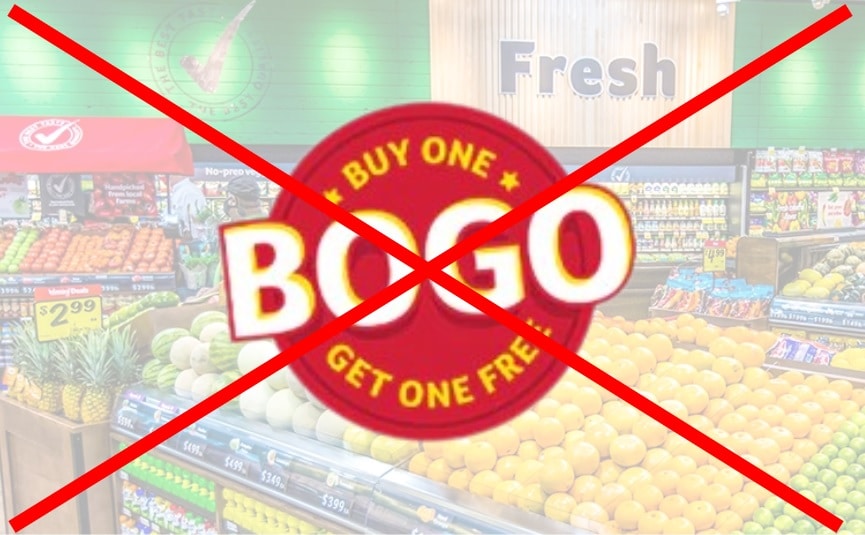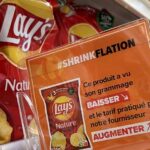No BOGOs? No problem!
Shoppers who love their buy-one-get-one-free deals in the U.S. likely wouldn’t stand for it. But across the pond, the British government has been looking to ban BOGOs altogether – until changing course recently, right on the heels of a new study that warned a ban could backfire in some unexpected ways.
Whether their goals were to reduce food waste or discourage the overconsumption of unhealthy foods, British lawmakers have been considering BOGO bans for years, and some retailers have eliminated them voluntarily. A nationwide ban was to take effect in England last year, until it was delayed until later this year, and now it’s been delayed again for at least two more years – and possibly indefinitely.
The Prime Minister says it’s because he believes in “peoples’ right to choose.” But two researchers say a rethink of the idea is warranted, because BOGO bans could have the exact opposite of their intended effect.
“Banning volume discounts to curb excessive consumption: A cautionary tale” appears in the latest edition of the European Economic Review. In it, the authors caution that shoppers are likely to shrug off restrictions on buy-one-get-one-free-type deals, and may end up buying even more than they did before.
The researchers studied what happened in Scotland when that country banned “multibuy” discounts on alcohol back in 2011. Everything from “buy one get one free,” to “three for the price of two,” to “buy six, save 25%” deals were no longer permitted. The government’s goal was to discourage overconsumption of alcohol, reasoning that a shopper intending to buy one bottle might be tempted by a multibuy deal to buy even more.
“Our analysis questions the validity of this thinking,” the authors write. They examined customer data after the pricing restrictions took effect, and found that “such a ban for retailing alcohol in Scotland increased rather than reduced sales.”
Part of the reason is that retailers circumvented the spirit of the law by offering alternative discounts. Instead of buy-one-get-one-free, they might have had a half-price sale instead. So instead of buying one and getting a second one for free, shoppers saw “half off” – and stocked up.
Other shoppers spread out their purchases and ended up buying more than they otherwise would. “Heavy purchasers” of alcohol responded to the pricing restrictions “by increasing the number of shopping trips per week,” the report found, “with the more frequent buying resulting in higher overall quantity” of alcohol purchased. While a BOGO deal might encourage shoppers to buy one now, and save one for later, a lack of BOGOs encouraged them to buy one now, come back later for another, and still later for even more.
“In light of our findings, we suggest the UK government should rethink its intention to ban multibuy deals in England,” the study’s authors wrote in a trade publication editorial. “Such a ban may backfire if retailers simply replace multibuy deals with other types of price promotions that encourage even more spending on unhealthy food and drink.”
And a week after that editorial was published, the UK government did just as the researchers advised. “I firmly believe in people’s right to choose – and at a time when household budgets are under continuing pressure from the global rise in food prices, it is not fair for government to restrict the options available to consumers,” British Prime Minister Rishi Sunak said in a statement. He announced that implementation of the already-delayed new policy would be pushed back to at least October 2025, “to allow the government to continue to review the impact of the restrictions on consumers and businesses.”
So this could turn out to be a lesson for any other government that tries to influence consumer behavior in order to improve public health. The road to a healthier society is paved with good intentions – but banning BOGOs may turn out to be little more than a bad idea.
Image source: Winn-Dixie














